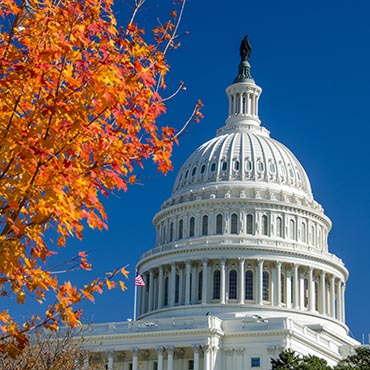Trade group presses Congress on IT bill

Facing a short post-election congressional calendar, backers of an IT modernization bill are pushing for swift action.

The House and the Senate have fewer than 20 working days after the election to cobble together a defense bill, a full-year funding measure and other loose ends before the 114th Congress gavels out.
That doesn't leave much for consideration of a humble IT modernization bill. The Modernizing Government Technology Act has passed the House, but has yet to be introduced in the Senate. It authorizes modernization funds at the 24 CFO Act agencies, as well as a governmentwide pot of money for IT modernization. The amounts are left up to appropriators.
The Professional Services Council is hoping to tee up attention to the measure ahead of the election, with an eye to getting it on the Senate calendar before time runs out on the current session of Congress.
"Congress and the Executive Branch should use this narrow window of opportunity to pass this important legislation and kick-start the modernizing and upgrading of federal information technology as well as enabling the adoption of new technologies to help make government more effective," PSC David Berteau wrote in a Nov. 4 letter to the Senate majority and minority leaders and the chair and ranking member of the Homeland Security and Government Affairs Committee. The letter also went out to the two original sponsors of modernization legislation in the upper chamber, Sens. Jerry Moran (R-Kan.) and Tom Udall (D-N.M.), who lead the General Government subcommittee of the Senate Appropriations Committee.
Alan Chvotkin, PSC's executive vice president and counsel, told FCW it was important to get the letter out before the election to convey the importance of the bill, regardless of how the vote affects the executive branch and, more importantly for the purposes of this bill, the composition of the Senate.
"Time is not an ally right now," Chvotkin said. "We are pleased with the bill in its current form, and wouldn't want to push changes or amendments at the expense of not getting the legislation enacted," he said.
The IT modernization bill has its origins in the Senate. Almost a year ago, Senate staffers and stakeholders begin work on a bill to help agencies shift aging IT systems into the cloud. That bill eventually merged with an Obama administration proposal, and passed the House as the MGT Act.
While the bill has been pushed by Moran and Udall, action may have to come from HSGAC. This is where politics could come into play. Chairman Ron Johnson (R-Wis.) is facing a tough reelection bid, and could return to Washington as a lame duck to wrap up his Senate career. His Democratic counterpart Tom Carper (D-Del.) could be in line for a promotion to a more prestigious committee assignment, possibly as chairman if the party alignment in the Senate flips to Democratic control.
Chvotkin said that the "good news" is that Moran, Udall and the staff working on the bill "have done a great job keeping everyone who has a hook into this bill engaged in the process." PSC aimed its letter at leadership and HSGAC to send a message that "now is the time for decision making," Chvotkin said.
The Obama administration is looking to agencies to get its ducks in a row in the event the bill passes. Draft policy recently released by federal CIO Tony Scott asks agencies to identify aging, vulnerable or otherwise critical IT systems to queue up for modernization.
Chvotkin welcomed the guidance, but cautioned that he hoped "it is not perceived that he is getting too far ahead of the Congress."
In the end, Chvoktin said, he didn't think the election results would have too much impact on the fate of the legislation. "Everyone acknowledges that government legacy IT needs repair," he noted. "The cybersecurity risk grows daily. Why wait?"
NEXT STORY: IOC just a first step for Cyber Mission Force



